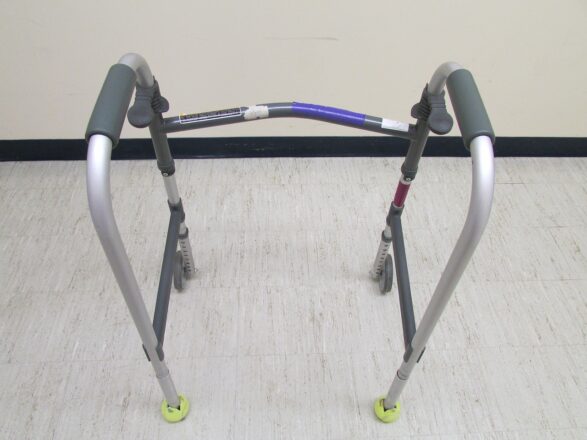Imagine having a caring companion around your home who tirelessly assists you in accomplishing your daily tasks, ensuring you maintain your independence even while dealing with health complications. This is the crucial role Home Health Aides (HHAs) play in personal care assistance.
They go beyond aiding with personal care tasks like bathing, grooming, dressing, or activities like using the toilet but also help with light housekeeping duties. You might find an HHA in the kitchen, preparing meals for clients who may be unable due to health conditions like arthritis or paralysis. If you need reminders to take medications, or assistance to move to a wheelchair or use a cane or walker, an HHA is there to provide the support.
They also offer companionship – a crucial aspect of maintaining mental and physical health especially for older adults. Their flexible work shifts cater perfectly to each client’s specific needs. Anticipation of a 41% surge in HHA jobs by 2026 echoes the increasing appreciation and demand for these unsung heroes in the home healthcare field.

Understanding the Role of Home Health Aides
What is a Home Health Aide?
A Home Health Aide (HHA) is a trained professional who assists individuals in their homes with essential activities of daily living (ADLs). The primary goal is to enable individuals to continue living independently at home, despite health issues or mobility limitations. Whether it’s providing personal care, assisting with meals, or offering companionship, the role of an HHA is multifaceted and indispensable.
The increasing demand for Home Health Aides
The demand for HHAs is on an upward trajectory, with a staggering 41% increase predicted by the Bureau of Labor Statistics by 2026. The rising demand arises from the growing elderly population and their inclination towards aging in the comfort of their homes over institutionalized settings. In fact, you may have a loved one who could benefit from their invaluable assistance right at your home.
Responsibilities of Home Health Aides in Personal Care
Ensuring personal hygiene
Personal care is one of the primary responsibilities of an HHA. This revolves around assisting individuals with personal hygiene tasks which some may struggle to perform on their own. This often includes bathing, toileting, oral hygiene, and other essential daily hygiene tasks. HHAs are trained to carry out these duties in a respectful and professional manner, always prioritizing the individual’s comfort, dignity, and health.
Supporting mobility
Mobility support forms a significant part of an HHA’s responsibilities. As many individuals may have trouble moving around, HHAs are adept at providing assistance to ensure safety and ease. This might include helping clients transfer from a bed to a wheelchair, aiding in walking with a cane or walker, or even offering support while climbing stairs or navigating around the home.
Assisting with dressing and grooming
Dressing and grooming are daily activities that often require skill and patience, especially when dealing with health issues or physical constraints. HHAs offer valuable support in these areas, assisting in dressing, managing buttons or zippers, combing hair, and aiding in grooming tasks that help maintain the individual’s appearance and self-esteem.
Nutritional Assistance Provided by Home Health Aides
Meal preparation
Preparing meals forms a crucial part of an HHA’s duties. Older adults or those with health conditions such as paralysis or arthritis may encounter challenges while cooking. In such cases, HHAs step in to take care of meal preparation. From pondering meal choices to doing grocery shopping, to cooking palatable, healthy meals, HHAs play a significant role in facilitating a balanced diet for their clients.
Assisting with feeding
In some instances, individuals may need assistance with feeding. This could be due to physical impairments or certain health conditions. HHAs are trained to provide sensitive, compassionate assistance with feeding, ensuring the individual is comfortable throughout the process while maintaining their dignity.
Nutritional planning and monitoring
Beyond meal preparation and aiding with feeding, HHAs are also involved in nutritional planning and monitoring. They are trained to understand the dietary needs and restrictions related to various health conditions. As a result, HHAs can help plan holistic, balanced meals that meet the individual’s nutritional needs while catering to their tastes.
The Role of Home Health Aides in Medication Management
Medication reminders
Adhering to medication regimens can be a challenge for many individuals, particularly those managing multiple prescriptions. HHAs can play the key role of reminding clients when to take their medications, ensuring they take the correct dosage at the right time.
Picking up prescriptions
Sometimes, mobility limitations or forgetfulness may hinder individuals from picking up their prescriptions from the pharmacy. In such cases, HHAs can provide invaluable support by collecting prescriptions on behalf of the client, ensuring they always have the necessary medications on hand.
Tracking medication intake
In addition to reminding about medications and picking up prescriptions, another integral part of an HHA’s role involves tracking medication intake. This means noting down when and what medication the client has taken to prevent inadvertent errors such as double dosing or skipped doses. This careful tracking can provide key information to family members and healthcare providers about the client’s medication adherence.

Significance of Home Health Aides in Light Housekeeping
Maintaining cleanliness
Maintaining a clean living environment is crucial for everyone’s health and well-being, even more so for individuals with health conditions or the elderly. An HHA’s duties often extend to light housekeeping tasks, including sweeping, mopping, dusting, and general cleaning to provide a hygienic, clutter-free living space.
Organizing household items
Making sure items are organized and easily accessible is another responsibility borne by HHAs. From sorting out mail to tidying up the kitchen or putting clothes away neatly, HHAs ensure everything is in place. This not only creates a serene environment but also reduces the risk of falls and other accidents due to clutter.
Ensuring safety in home environment
Safety of home environment is yet another crucial aspect under an HHA’s purview. They go beyond the basic cleaning and organizing, ensuring that the home is free from hazards. HHAs also ensure that important objects, medical supplies are within reach, and emergency contacts are easily accessible.
The Companionship Role of Home Health Aides
Promoting social connections
Loneliness can take a toll on anyone’s mental and physical health, especially older adults living independently. This is where the companionship provided by HHAs becomes invaluable. Through conversation, shared meals or other activities, HHAs provide valuable social interaction, helping to alleviate feelings of isolation and loneliness and promoting overall well-being.
Mental and emotional support
Providing mental and emotional support is an often underestimated but a critical aspect of an HHA’s role. They not only provide a listening ear but also offer reassurance, comfort, and encouragement. Their constant presence can provide a sense of security and familiarity, crucial components in maintaining emotional and mental health.
Engaging in recreational activities
Beyond chores and personal care, engaging clients in recreational activities is another meaningful role played by HHAs. Whether it’s playing a board game, watching a favorite show, visiting a local park or participating in a hobby, these shared activities can greatly enrich the daily lives of those they serve.
Home Health Aides Supporting Mobility and Physical Activities
Aiding in physical exercises
Physical exercises are vital for maintaining health and mobility, especially for the elderly or those with health conditions. HHAs often assist with these exercises, providing guidance and support. They may provide help with gentle exercises like stretching, simple strength training or even accompanying the client on a short walk.
Assisting in moving (e.g., from bed to wheelchair)
As mentioned earlier, supporting mobility is a key responsibility for an HHA. This includes helping clients with movements such as from a bed to a wheelchair, into the bath, onto a commode, or any other necessary transfers. HHAs are trained in safe transfer techniques, ensuring that the client is moved without discomfort or risk of injury.
Using mobility aids (e.g., canes, walkers)
Another aspect of mobility support involves the use of aids like canes, walkers, or wheelchairs. HHAs help clients use these tools correctly, making sure they support the individual’s mobility and independence while maintaining safety.
Monitoring Health Condition by Home Health Aides
Observing changes in health condition
HHAs play a critical role in observing and monitoring changes in a client’s health condition. This may include noting changes in physical health, mood, appetite, sleep patterns, or any signs of discomfort. These observations can provide valuable insights into the client’s well-being and facilitate early intervention if needed.
Communicating client’s health status with family and medical professionals
The information gathered by observing changes in a client’s health is often communicated to family members and healthcare professionals. This keeps everyone informed and allows for timely adjustments to care plans or medical interventions. It underscores the pivotal role HHAs play in the healthcare team.
Dealing with emergencies
Equipped with essential training, HHAs are prepared to handle emergency situations effectively. They’re trained to identify signs of a medical emergency, perform first aid, and contact emergency services or healthcare professionals urgently. This ability can be life-saving and provides comfort to family members knowing their loved ones are in capable hands.
Working Conditions and Hours for Home Health Aides
Working shifts
The working hours of an HHA can differ widely. Some may work short shifts of two hours while others may work full eight hours shifts, and some might work overnight. Everything depends on the individual client’s needs. Flexibility is therefore a fundamental attribute for an HHA.
Client-specific needs
Every client is unique, with specific needs and preferences. Some may require assistance with virtually all ADLs, while others might need help only with specific tasks like meal preparation or medication reminders. Understanding and adapting to these specific needs is a typical part of an HHA’s work.
Challenges faced during work
As fulfilling as the profession may be, like any other job, being an HHA comes with its own set of challenges. This might include dealing with difficult behaviors, working with clients facing distressing health conditions, or balancing the varied needs of different clients. Despite these challenges, HHAs bring a compassionate professionalism to their work, making a significant difference in the lives of those they serve.
The Role of Home Health Aides in Health Education
Educating clients and families about health conditions
As part of a holistic care approach, HHAs are often involved in educating clients and their families about their health conditions. This could include explaining the nature of the condition, effects of medications, and best self-care practices. This empowers clients and their families with information and can lead to improved adherence to care plans and greater involvement in health decisions.
Promoting healthy habits and lifestyle
HHAs play an instrumental role in promoting a healthy lifestyle and good habits. This can entail advocating for a balanced diet, regular physical exercise, adequate sleep, and good hygiene practices. By fostering these habits, HHAs help prevent health complications and enhance overall well-being.
Guiding clients through health care decisions
For many, navigating healthcare decisions can be daunting, even more so when dealing with health conditions. An HHA serves as an invaluable guide in these scenarios, helping clients understand their treatment options, medication instructions, follow-up protocols, etc. By lending their knowledge and support, HHAs help clients make informed decisions regarding their health and welfare. This comprehensive look into the roles and responsibilities of HHAs underscores their value in home-based care. If you consider this profession or need such services for a loved one, understanding these myriad roles could help you appreciate the significant positive change an HHA can bring to a home and life.
